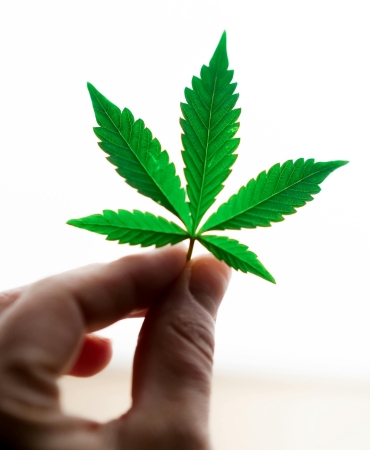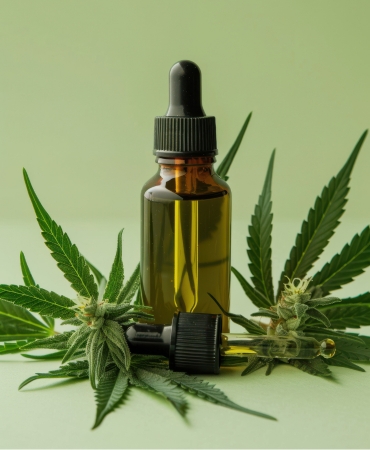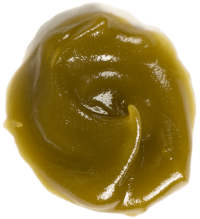
CBD Oil Market in India for Entrepreneurs: Trends, Demand & Profit Margins
Team Hempbuti

CBD Oil Market in India for Entrepreneurs: Trends, Demand & Profit Margins
See why entrepreneurs are eyeing the CBD oil market in India. Get 2025 insights on demand, legality, and where the big profits are.
Thinking of diving into the CBD oil market in India? —2025 is looking like a gold rush for health-focused entrepreneurs. The market is expected to hit ₹1,500 crore ($180M) by 2026, according to IMARC Group.
That’s not just hype—it’s numbers talking. In fact, the Indian market for CBD products is projected to reach approximately $1 billion by 2025, highlighting its immense potential.
From Ayurvedic support to a growing army of wellness-obsessed millennials, the demand is heating up fast. Add legal gray zones that reward first movers, and yeah, the timing’s perfect. This guide breaks down the trends, buyer behavior, and profit margins—so you can stop Googling and start planning.
Ready to find out if it’s really worth it? Let’s go.
Why Entrepreneurs Are Eyeing the CBD Oil Market in India
-
India’s Huge Wellness-First Audience Is Ripe for CBD: Health is a big deal in India. Many people prefer natural health solutions and natural remedies over heavy medication. Products like CBD oil are gaining interest because they’re plant-based and may help with pain relief, chronic pain, and sleep quality.
-
Legal Loopholes Create a First-Mover Advantage: CBD is in a gray area in India. It’s not fully banned—but it’s not fully accepted either. Hemp-based CBD oil, which contains minimal THC content, is allowed under certain rules. This gives early-stage entrepreneurs a first-mover advantage.
-
Profit Margins Are Surprisingly High: Selling high quality CBD products can be very profitable. Why? Because people are willing to pay more for premium cbd oil that is safe and tested. Products that go through third party testing and have strong quality control sell better and build trust.
-
Educated Urban Buyers Are Already Searching for CBD: Urban buyers are curious. They’ve read about cbd in india, and they’re Googling terms like “buy cbd oil india” or “cbd oil benefits.” Many are looking for help with stress relief, wellness concerns, and improving sleep quality.
-
Export Potential Adds Extra Growth Fuel: India isn’t just a market—it’s also a producer. Hemp cultivation is expanding in states like Uttarakhand and Himachal Pradesh. This opens doors for export.
With proper extraction methods, India could become a cbd market supplier to global wellness brands. The market size outside India is also seeing significant growth, making this a great time to invest. -
Support from Ayurveda and Traditional Medicine Practitioners: Ayurveda has long used cannabis plant extracts (called Vijaya). Now, many traditional medicine doctors are blending CBD into their practice.
“CBD is not foreign to us—it aligns with our ancient wellness philosophy,” says Dr. Meenal Patil, an Ayurvedic practitioner in Mumbai. This changing attitude helps reduce stigma and builds trust among indian consumers. -
Digital-First Sales Mean Low Overhead: You don’t need a fancy store to sell CBD oil. Thanks to e commerce and online platforms, you can start small and scale fast. Low overhead = higher profits.
Key Trends Fueling the Growth of CBD in India (2025 Outlook)
CBD oil is no longer a secret. More Indian consumers now know that it comes from the cannabis plant, but it doesn’t get you high—unlike THC. This oil is used in natural health solutions like skin creams, tablets, or drops.
According to a 2024 report from IMARC Group, the cbd market in India is expected to grow at over 20% each year. That’s a significant growth rate.
The Growing Popularity of CBD Oil in India
1. Rise of CBD Awareness in Urban India
-
Cities like Mumbai, Delhi, and Bangalore are seeing more people asking about cbd in India. Why? Because urban folks are reading about the potential health benefits of cannabidiol oil.
-
They're learning that CBD may help with wellness concerns like anxiety, joint pain, and even neurological disorders.
-
“People are looking for clean, plant-based fixes,” says Dr. Ishita Reddy, a wellness doctor from Hyderabad. “They don’t want traditional medications unless needed.”
2. Demand Spike Among Millennials & Wellness Seekers
-
Millennials love researching. They want products that match their wellness routines. Many are choosing premium CBD oil to deal with daily stress or improve focus.
-
Search data shows a 150% rise in “buy CBD oil” and “CBD oil India” over the past year. Most of these searches come from people aged 25–35.
-
They are also more likely to try natural alternatives before going to a doctor. They read reviews, check for medical cannabis approval, and care about where the hemp plant was grown.
-
The growing awareness and acceptance of CBD are primarily driven by social media and wellness influencers, who play a key role in educating and inspiring this demographic.
3. Wellness Influencers & Ayurvedic Fusion Products
-
Social media influencers and Ayurveda brands are now blending CBD into everyday products. They talk about pain relief, anti-inflammatory properties, and how to extract CBD safely.
-
Many brands are even combining traditional medicine with modern cbd products. These are gaining trust, especially among people who follow Ayurvedic lifestyles.
-
Brands like Hempbuti offer cbd products that fit both modern needs and ancient wellness traditions. This makes it easier for people to accept and try CBD.
What Indian Consumers Want: Preferences, Awareness & Natural Health Trends
The CBD oil market in India is growing not just because of business interest, but because people want better health options. Indian consumers today are more aware. They don’t just buy—they research, compare, and ask questions.
Many people in India are now turning to natural health solutions. They want safe options to manage things like chronic pain, stress relief, sleep quality, and more. Products like CBD oil, which come from the cannabis plant, are becoming popular for this very reason.
Let’s break down what Indian consumers are really looking for:
What’s Driving Consumer Interest?
-
Growing Awareness: More people now know the difference between CBD and THC. CBD is non-psychoactive, meaning it doesn’t make you high.
-
Trust in Ayurveda: Ayurveda has always focused on natural remedies. People trust it. Now, when CBD is combined with Ayurvedic practices, it feels more acceptable.
-
Search for Natural Alternatives: Many consumers want to avoid traditional medications if possible. CBD offers a natural alternative.
-
Preference for Quality: Buyers prefer high quality CBD products that show third party testing, quality control, and proper sourcing from the hemp plant.
-
Digital Research: Most buyers compare brands online. They read reviews, study labels, and even look for brands that talk about wellness concerns openly.
Common Consumer Preferences
-
Clear info on potential health benefits like pain relief, anxiety control, or improving sleep quality.
-
Easy-to-use delivery methods like oils, capsules, or skincare creams.
-
Transparent ingredient lists and lab-tested labels.
-
Info on regulatory landscape: Is it legal? Where can I buy it?
Medical Cannabis in India: Growing Body of Research & Support
People often confuse CBD with medical cannabis. But here's the thing—medical cannabis can include both CBD and THC, but is used in controlled doses for health issues like neurological disorders and chronic pain.
A growing body of global and Indian research now supports medical cannabis for treating joint pain, epilepsy, and even anxiety. Doctors in India are slowly joining this wave.
Experts Say: “Patients who used CBD-based oils along with standard care showed better results in pain management,” says Dr. Renu Jha, an integrative health expert from Delhi.
States like Uttarakhand and Madhya Pradesh have approved hemp cultivation, which helps with regulated sourcing.
Profit Margins & Market Opportunities of CBD Oil (India): Is It Worth Entering Now?
If you're thinking about entering the CBD oil market in India, you probably wonder: "Can I really make money?" The simple answer is yes.
-
Right now, the Indian CBD market is seeing rapid growth because of increasing consumer awareness and strong growing demand. People want safe and natural products like CBD for health benefits, like better sleep, anxiety, or pain relief.
-
One big reason profit margins are high is because there are still few market players. This means less competition. Also, customers prefer high-quality CBD products that clearly show what's inside. Products tested by labs and labeled clearly sell for higher prices, meaning better profits.
-
The e-commerce boom in India also helps keep your costs low. You can sell CBD products online without paying rent for a shop or hiring a huge team. According to market research from IMARC, India's CBD market size will hit ₹1,500 crore by 2026. That's a big jump!
Experts Say: "The regulatory landscape for CBD is still new in India," says Dr. Priya Sharma, an expert from Hempstreet. "But this gray area actually offers opportunities for early movers."
In short:
-
High profit margins because demand is strong.
-
Less competition means better chances to grow.
-
Low-cost e-commerce channels make selling simple.
-
Clear labels and quality testing build trust with buyers. The pandemic accelerated the shift towards e-commerce, further boosting the CBD market by making it easier for consumers to access products online.
-
High profit margins because demand is strong.
-
Less competition means better chances to grow.
-
Low-cost e-commerce channels make selling simple.
-
Clear labels and quality testing build trust with buyers.
The CBD market in India offers big rewards for early movers. If you’re ready to do it right—clean products, lab-tested, and legal—it’s definitely worth a closer look.
Product Spotlight: Buy CBD Oil from Hempbuti
Hempbuti offers a variety of CBD oil products tailored for wellness. Their offerings include the "Ritual Oil 30 ml," a premium CBD oil designed for daily use, priced at ₹1,259, and the "Rx Migraine Aid 30 ml | 2500 mg," formulated to alleviate migraine symptoms, available for ₹3,999.
All products are derived from organically grown hemp and undergo rigorous lab testing to ensure purity and potency. Hempbuti's commitment to quality and transparency makes them a reliable choice for those seeking CBD oil in India.
How to Buy CBD Oil (India) Safely
1. Start with Legally Approved Brands
-
CBD in India falls under a gray area. Some cannabis derived products are legal if they come from hemp and have minimal THC content. Always check the legal status of the brand you’re buying.
-
Hempbuti follows all FSSAI and AYUSH guidelines to ensure their products meet standards. The Ministry of Ayush has recognized Ayurveda, paving the way for the legalization and regulation of CBD products in India.
2. Always Ask for Third-Party Lab Reports
-
A legit CBD oil brand should provide a Certificate of Analysis (COA) showing what’s really inside the bottle.
-
These reports confirm potency, purity, and that the product is free from heavy metals and pesticides.
3. Check Product Type: Full-Spectrum, Broad-Spectrum, or Isolate
-
Full-spectrum contains trace THC and all plant compounds (more therapeutic, may not be legal everywhere).
-
Broad-spectrum has no THC but retains other cannabinoids.
-
CBD Isolate is pure CBD—ideal for cautious beginners in India.
4. Buy from Verified Websites or Ayurvedic Clinics
-
Trusted sites like Hempbuti, BOHECO, and Cannablithe offer clear product info and customer support.
-
If unsure, visit Ayurvedic clinics where CBD is prescribed under traditional medicine.
5. Don’t Fall for “Miracle Claims”
-
Be cautious of brands promising instant cures or using aggressive influencer marketing.
-
Real CBD effects are subtle and vary person to person—look for brands that educate, not exaggerate.
6. Review the Ingredients Label Like a Pro
-
Avoid products with artificial flavors, synthetic preservatives, or unclear carrier oils.
-
A good CBD oil should list ingredients like hemp extract, MCT oil (or similar), and natural flavoring—nothing else.
7. Compare Price per mg of CBD (Not Just the Bottle Price)
-
Some products seem cheap but offer very little actual CBD.
-
Calculate cost per mg to make smart comparisons across brands.
How Cannabidiol Oil Is Made: Extraction Process, Quality Control & Third-Party Testing
Step 1: Extraction Process
-
CBD comes from the cannabis plant—usually from hemp. Hemp has minimal THC content, which means it doesn’t make you feel high.
-
The oil is taken out using methods like CO2 extraction or ethanol-based extraction. CO2 is cleaner and keeps the plant’s therapeutic properties intact.
Step 2: Quality Control
After extraction, the oil is filtered and tested for safety. This is where quality control kicks in. It helps check for:
-
Heavy metals
-
Pesticides
-
Bacteria
-
Potency (How much CBD is actually in it).
Quality control in CBD products is crucial due to the market's saturation with unregulated offerings, making it essential for brands to maintain transparency and high standards. Brands that care about quality will show their results.
Step 3: Third-Party Testing
-
Good brands don’t just test in-house. They send samples to independent labs. This is called third-party testing.
-
You should only trust CBD products that share their lab reports openly. If a brand hides them, skip it. This test proves the oil is free from toxins and meets standards for cannabis derived products
Delivery Methods of CBD Oil: What Sells in the Indian Market
1. CBD Oil Tinctures (Dropper Bottles) – Most Popular Format
This is the most common option in the CBD industry. You put a few drops under your tongue. It works quickly and is easy to measure. Many consumers prefer tinctures because they feel the effects fast—especially for stress relief and chronic pain.
2. Capsules & Tablets – Preferred by Ayurvedic Buyers
Some people don’t like the taste of oil. Capsules feel like regular medicine and are easier to carry. Ayurvedic doctors also recommend them for their controlled dosage.
3. Topicals – Gaining Ground in Skincare & Pain Relief
Lotions and balms with CBD oil are rising in demand. These are applied to the skin for joint pain or acne. They don’t go into your bloodstream but help provide relief where you need it.
4. CBD Beverages & Gummies – Early But Trending
These are new in the Indian CBD market, but catching on fast. Younger users like them for flavor and ease. Brands are launching such products for fun, travel-friendly use.
5. Prescription-Only Vijaya Extracts
This is the only cannabis-derived product approved for prescription in India. It’s used for epilepsy, cancer-related pain, and neurological disorders. You can only get it from an Ayurvedic doctor.
Changing Attitudes Toward Cannabis and CBD in India
-
From "Drug" to "Natural Remedy": 5 years ago, CBD was confused with marijuana. Today, urban Indians see it as a wellness supplement—thanks to media and influencer education.
-
Ayurveda's Quiet Backing Is Building Trust: Cannabis leaves (Vijaya) have always had a place in Ayurveda. Ayurvedic brands using this narrative help ease the stigma.
-
Doctors Are Opening Up—Cautiously: A small but growing number of Indian doctors are exploring CBD for epilepsy, anxiety, and pain. Platforms like Hempstreet offer integrative consultations, normalizing its medical use.
-
Young Indians Are Driving Curiosity: Gen Z and millennials are actively Googling, buying, and sharing CBD experiences. Wellness and productivity—not partying—are the new motivators.
-
Government Still Cautious but Not Dismissive: The NDPS Act still creates gray zones, but hemp-based CBD is allowed under certain guidelines. State-level hemp farming policies (e.g., Uttarakhand) reflect a slow shift toward acceptance.
The Road Ahead: What Entrepreneurs Should Know Before Investing in CBD Products
The CBD oil market in India is growing—but that doesn’t mean it’s easy. If you're planning to invest, you need to know what’s ahead. Here's what smart entrepreneurs are watching.
1. Regulation Is Still a Gray Area
-
India’s cbd industry is evolving. While hemp-based CBD is legal, THC-based products are not. The regulatory landscape is unclear in some states. Always check the laws in the region you want to operate in.
-
Experts Say: “A lack of policy clarity slows growth, but also creates first-mover advantage,” says Neha Gupta, a Mumbai-based hemp entrepreneur.
2. Market Is Promising but Competitive
-
The CBD market has seen significant growth, especially online. But hitting the right niche takes time. You’ll need more than just a product—you’ll need a brand that consumers trust. Focus on quality, transparency, and value.
-
Don’t forget: the Indian audience is still increasing awareness around natural health solutions. That’s your chance to educate and lead.
3. Watch for Trends and Long-Term Shifts
-
New product formats and uses are gaining popularity. Look beyond oils—CBD topicals, beverages, and Ayurvedic blends are trending.
-
Also, think long term. Experts point to market growth as a major factor for sustained returns. Keep an eye on fueled interest from wellness and pharma brands.
4. Understand the Risks and Mindsets
-
Yes, CBD has potential benefits, but you must educate your customers. Many still confuse CBD with marijuana and fear psychoactive effects.
-
Good content, clear labeling, and third-party testing are key to building trust.
The CBD oil market in India is no longer a niche—it’s a fast-growing opportunity backed by rising demand, consumer awareness, and Ayurvedic trust. With the right education, quality control, and timing, entrepreneurs can thrive in this evolving space. If you're ready to act smart, now’s the time to enter and lead India’s next wellness wave. Currently, the Narcotic Drugs and Psychotropic Substances Act of 1985 governs cannabis-related substances in India, adding a layer of complexity to the regulatory landscape.





























